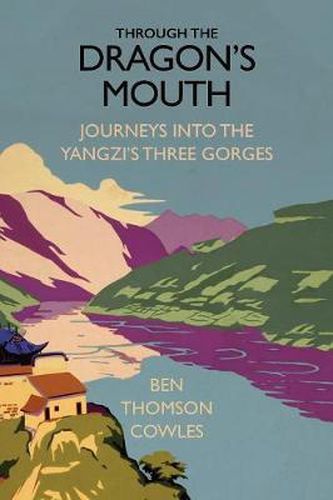Readings Newsletter
Become a Readings Member to make your shopping experience even easier.
Sign in or sign up for free!
You’re not far away from qualifying for FREE standard shipping within Australia
You’ve qualified for FREE standard shipping within Australia
The cart is loading…






This title is printed to order. This book may have been self-published. If so, we cannot guarantee the quality of the content. In the main most books will have gone through the editing process however some may not. We therefore suggest that you be aware of this before ordering this book. If in doubt check either the author or publisher’s details as we are unable to accept any returns unless they are faulty. Please contact us if you have any questions.
The Three Gorges enjoy the reputation of being a world-famous art gallery, providing inexhaustible source material for poets, dramatists, and historians. Men of letters and famous calligraphers have frequented the region since earliest times. Many forms of classical poetry and drama have found expression in verse and tragedy about this region. To mention the Sanxia (Three Gorges) is to evoke awe in the Chinese. The myths associated with the gorges are compared with those of the Yellow, Min and others of China’s great rivers. These epics are cultural DNA, the unconscious programs that influence the way many Chinese see reality and respond to it.
Venturing into the funnel-like gorges, the ancient Chinese claimed, is like entering the dragon’s mouth. Precarious and awesome, hidden in the caverns of inaccessible mountains or finally uncoiled in the depths of the sea, this Chinese dragon unpredictably breaks forth into a torrent of activity. He unfolds himself in the storm clouds and washes his mane in the blackness of seething whirlpools. His claws are bursts of lightning and his scales glisten in the bark of rain-swept pine trees. His voice is heard in wind howling through chasms, scattering the forest’s withered leaves and so quickening a new spring.
From his first trip as a young child in 1946 through a succession of visits in the 1980s and 1990s, Ben Thomson Cowles charts the significance, the beauty, and the poetry of the Three Gorges, and describes what was lost in the construction of the colossal dam that now bears that name.
$9.00 standard shipping within Australia
FREE standard shipping within Australia for orders over $100.00
Express & International shipping calculated at checkout
This title is printed to order. This book may have been self-published. If so, we cannot guarantee the quality of the content. In the main most books will have gone through the editing process however some may not. We therefore suggest that you be aware of this before ordering this book. If in doubt check either the author or publisher’s details as we are unable to accept any returns unless they are faulty. Please contact us if you have any questions.
The Three Gorges enjoy the reputation of being a world-famous art gallery, providing inexhaustible source material for poets, dramatists, and historians. Men of letters and famous calligraphers have frequented the region since earliest times. Many forms of classical poetry and drama have found expression in verse and tragedy about this region. To mention the Sanxia (Three Gorges) is to evoke awe in the Chinese. The myths associated with the gorges are compared with those of the Yellow, Min and others of China’s great rivers. These epics are cultural DNA, the unconscious programs that influence the way many Chinese see reality and respond to it.
Venturing into the funnel-like gorges, the ancient Chinese claimed, is like entering the dragon’s mouth. Precarious and awesome, hidden in the caverns of inaccessible mountains or finally uncoiled in the depths of the sea, this Chinese dragon unpredictably breaks forth into a torrent of activity. He unfolds himself in the storm clouds and washes his mane in the blackness of seething whirlpools. His claws are bursts of lightning and his scales glisten in the bark of rain-swept pine trees. His voice is heard in wind howling through chasms, scattering the forest’s withered leaves and so quickening a new spring.
From his first trip as a young child in 1946 through a succession of visits in the 1980s and 1990s, Ben Thomson Cowles charts the significance, the beauty, and the poetry of the Three Gorges, and describes what was lost in the construction of the colossal dam that now bears that name.